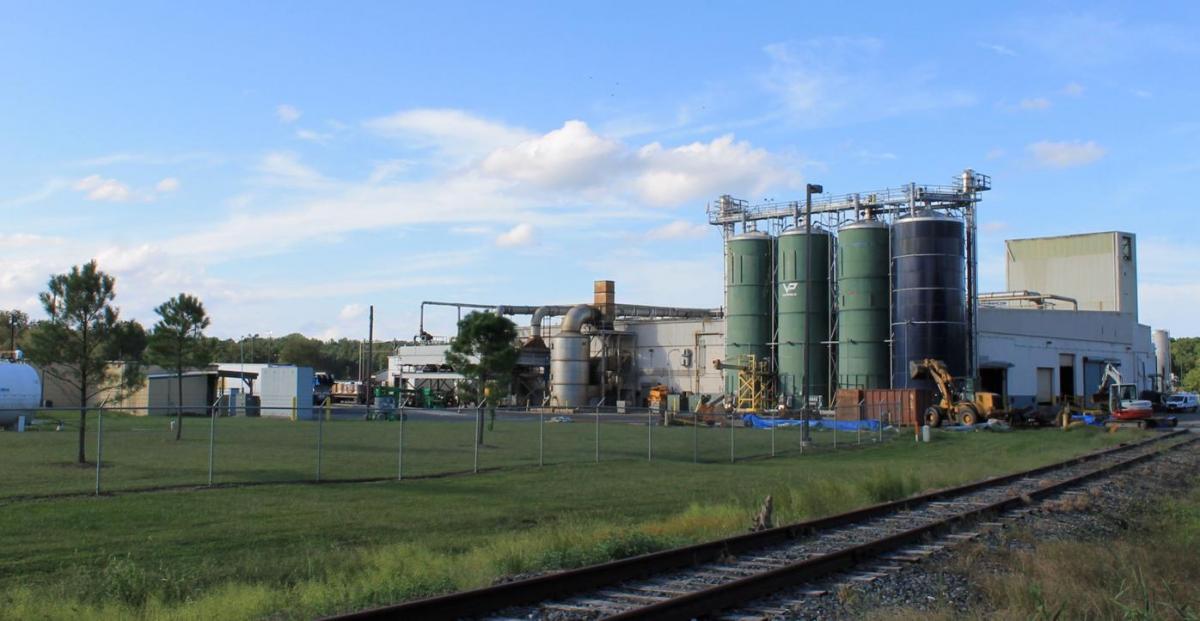Today, Maryland Dept. Of the Environment filed a judicial Consent Decree signed by the department, Valley Proteins, Chesapeake Bay Foundation (CBF), Dorchester Citizens for Planned Growth (DCPG), and ShoreRivers that requires Valley Proteins to upgrade equipment, pay significant fines, and investigate groundwater at the site.
Once entered by the Dorchester County Circuit Court, the Consent Decree will settle a lawsuit brought by CBF, ShoreRivers, DCPG, and the state of Maryland–the Plaintiffs– after Valley Proteins violated its permitted wastewater pollution limits for years. The facility’s more than 40 violations over the previous decade have resulted in excess amounts of nitrogen, phosphorus, fecal coliform bacteria, and ammonia entering the Transquaking River and the Chesapeake Bay.
The Consent Decree also aims to address community complaints related to the Linkwood rendering plant ranging from excessive algal blooms in local waterways to foul smells emanating from the facility. Valley Proteins primarily renders chicken carcasses and feathers into pet food and other products at the plant.
Environmental organizations for years had been urging Maryland Department of the Environment (MDE) to enforce permit limits at the facility, which has been operating with a wastewater discharge permit that expired in 2006. Formal lawsuits were filed by MDE, CBF, DCPG, and ShoreRivers in Feb. 2022 after drone footage and other photos captured by ShoreRivers in late 2021 documented sludge flows and inadequately treated wastewater entering a stream leading to the Transquaking River. The new evidence led MDE to briefly shut the plant down in late 2021.
Valley Proteins was sold to Darling Ingredients while negotiations over the Consent Decree took place. Valley Proteins and Darling will be responsible for meeting the terms of the settlement.
“Valley Proteins’ previous ownership failed to operate and maintain this rendering plant to the standards expected in the state of Maryland, so we took action,” said Alan Girard, CBF’s Eastern Shore Director. “The Consent Decree imposes strict measures coupled with enhanced MDE and citizen oversight to ensure the new owners end the facility’s long record of pollution violations. We hope other business owners take notice: If you pollute Maryland’s waterways, you will be held accountable.”
The following terms are included in the Consent Decree:
- Valley Proteins is ordered to pay $540,000 in civil penalties to the state of Maryland and provide $135,000 to nonprofit plaintiffs for new Transquaking River monitoring and restoration work.
- Valley Proteins must conduct a groundwater study, reviewed and approved by the plaintiffs, to evaluate whether the above ground wastewater treatment system, wastewater lagoons, and the facility’s septic system are contributing pollutants to groundwater at the site. If leaks are found, corrective actions must be taken.
- Valley Proteins must complete a plan to reduce odors emanating from the facility.
- Structural and procedural stormwater improvements must be made at the facility.
- Valley Proteins must share documents with CBF, ShoreRivers, and DCPG related to any plans to expand or upgrade the plant as well as details related to meeting the requirements of a renewed discharge permit.
- If violations of the Consent Decree occur, Valley Proteins is ordered to pay penalties of $250 per day up to the first seven days of noncompliance, $500 per day for 8 to 120 days of noncompliance, and $1,000 per day for every day after 120 days.
The terms are designed to address past violations and deter Valley Proteins from violating its wastewater permit in the future. The state-issued permit is intended to prevent excess pollutants such as nitrogen, phosphorus, and bacteria from being discharged by the plant and overwhelming the Transquaking River ecosystem. Too many pollutants in the river can cause fish kills, harm human health, and seriously damage water quality.
The company is seeking a renewal of its permit and plans to expand the facility.



Write a Letter to the Editor on this Article
We encourage readers to offer their point of view on this article by submitting the following form. Editing is sometimes necessary and is done at the discretion of the editorial staff.